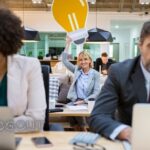Have you ever experienced a power outage and wished you had a reliable backup? Whether it’s a storm or a sudden electrical failure, having the best portable generator for home can keep your essentials running.
Choosing the right one can be overwhelming, but it doesn’t have to be. In this guide, we’ll break down the key features to look for, so you can find the best backup generator that suits your needs, provides peace of mind, and ensures your home stays powered when you need it most.
Power Output
The power output of the best rated portable generators is one of the most important features to consider. It is measured in watts and indicates how much power the generator can supply. A higher wattage ensures that the generator can run more appliances simultaneously.
It is important to calculate the total wattage required by the appliances you plan to power. This includes both the running wattage and the surge wattage for appliances that need extra power to start.
The benefits of a backup generator with sufficient power output are clear, as it ensures that your essential devices stay functional during an outage. Make sure to choose a generator with a power output that meets or exceeds your household’s needs.
Surge Wattage
Surge wattage is the maximum amount of power a generator can provide for a short time when starting appliances. Many appliances, like refrigerators and air conditioners, need extra power to start up. The surge wattage is typically higher than the running wattage.
It is crucial to ensure that the generator has enough surge wattage to handle devices with high startup requirements. If the generator cannot meet the surge demands, it may overload and shut down. Look for a generator that has sufficient surge wattage to protect your equipment and ensure reliable performance.
Fuel Type
Portable generators run on different types of fuel, with gasoline, propane, and diesel being the most common. Gasoline is widely available but can expire quickly if not used, making it less reliable for long-term storage. Propane is a cleaner fuel that has a longer shelf life and is more stable over time.
Diesel generators are known for being fuel-efficient and have a longer operational life. However, diesel is typically more expensive and may not be as convenient for small-scale home use. It is important to select the right fuel type based on your location, fuel availability, and specific needs.
Run Time
The run time of a generator refers to how long it can operate on a full tank of fuel. Most generators list their run time at 50% load, as this provides the most efficient operation. A longer run time is essential during power outages to avoid frequent refueling.
Generators with longer run times are ideal for extended outages, reducing the need to check fuel levels frequently. A longer run time also means that you can keep essential appliances running for a more extended period. When choosing a generator, consider how long you may need it to operate without interruption.
Portability
Portability is a key factor when selecting a generator, especially for home use. The weight and design of the generator impact how easily it can be moved from one place to another. Most portable generators include handles or wheels to make transportation easier.
It is essential to select a model that fits your needs for portability. Some generators are lighter and more compact, while others are larger and require more effort to move. If you plan to move the generator often, look for one that offers convenient features like wheels or a foldable handle.
Noise Level
Noise level is an important consideration for generators used in residential areas. Generators produce varying levels of sound, and some models are designed to run more quietly than others. The decibel rating (dB) measures the sound emitted by the generator.
Generators that produce lower noise levels are better for use in areas where loud sounds may be disruptive. If you plan to use the generator for long periods, it is helpful to choose one that operates quietly. Many modern generators are designed with noise reduction features to keep decibel levels at a minimum.
Outlets
Generators offer a range of outlets to connect different devices. The most common are standard AC outlets, which can power household appliances. Some generators also include DC outlets and USB ports for charging smaller electronics, such as phones and laptops.
Having multiple outlets allows you to power a variety of devices simultaneously. This flexibility is especially useful if you need to run both heavy appliances and smaller electronics at the same time. Ensure that the generator has the right mix of outlets for your specific needs.
Inverter Technology
Inverter technology is used in some portable generators to produce clean and stable power. This type of power is safe for sensitive electronics like laptops, TVs, and smartphones. Inverter generators adjust their engine speed based on the load, which reduces noise and fuel consumption.
While inverter generators tend to be more expensive than conventional models, they provide higher-quality power. This makes them a good choice if you need to protect expensive or sensitive equipment. Inverter generators are also often more fuel-efficient than traditional ones, making them ideal for extended use.
Electric Start
Electric start is a feature that allows you to start the generator with the push of a button. This is a convenient option, especially when the generator is being used in an emergency situation. Electric start eliminates the need for a pull cord, making it easier to operate.
This feature is especially helpful for people who may find manual starting difficult. It is also quicker and more reliable, which can be crucial during power outages. However, some electric start models still require a battery to power the feature, so it’s important to maintain it.
Low-Oil Shutdown
Low-oil shutdown is a safety feature that automatically turns off the generator when the oil level gets too low. This prevents the engine from running without enough lubrication, which could lead to damage. It is a critical feature that helps extend the lifespan of the generator.
Many modern generators include this feature to avoid engine failure caused by insufficient oil. It is especially important in generators that will be running for extended periods. Be sure to check if the generator has this feature to protect your investment.
Overload Protection
Overload protection ensures that the generator will shut down if it exceeds its power capacity. This prevents damage to both the generator and the devices that are connected to it. Overloading a generator can cause it to overheat and fail, so this feature is essential for safe operation.
Generators with overload protection typically include circuit breakers or fuses that trip when the load exceeds a safe limit. This feature adds an extra layer of security when using high-powered appliances. It also helps to prevent costly repairs or replacement of damaged components.
Maintenance Alerts
Some portable generators include maintenance alerts that notify you when service is required. These alerts can help you stay on top of routine maintenance tasks, such as oil changes or air filter replacements. Regular maintenance ensures that the generator operates efficiently and lasts longer.
Generators with built-in maintenance alerts may display warning lights or provide notifications on a digital screen. This feature is especially useful for people who may not be familiar with the generator’s maintenance needs. It helps prevent breakdowns and ensures the generator is ready when needed.
Fuel Gauge
A fuel gauge shows the current fuel level in the generator’s tank. This is a helpful feature for monitoring fuel usage and knowing when to refuel. Without a fuel gauge, you may not know when the tank is running low, which can lead to unexpected shutdowns.
Having a clear fuel gauge helps you plan your usage more efficiently. It allows you to avoid running out of fuel during critical moments. Make sure that the generator you choose has an accurate and easy-to-read fuel gauge for convenience.
Battery Charge
For generators with electric start, a built-in battery is required to power the start feature. The battery charge must be maintained, as it is essential for starting the generator. Some generators include a charging system that keeps the battery charged when the generator is running.
If the battery is not properly maintained or charged, the electric start may not function. It is important to check the battery regularly and ensure it is in good condition. Some generators have a battery charge indicator to let you know when it’s time to recharge.
Power Your Home With the Best Portable Generator for Home Reliability and Convenience
Choosing the best portable generator for home use involves carefully considering key features like power output, fuel type, and portability. Each home has unique needs, so it’s important to select a generator that fits those requirements. A well-chosen generator can provide reliable power during emergencies and help keep essential devices running.
Investing in the best home standby generator ensures safety and convenience. With the right features, your generator will serve you well for years.
Did you find the information in this article helpful? If so, be sure to check out our blog for more valuable resources.







